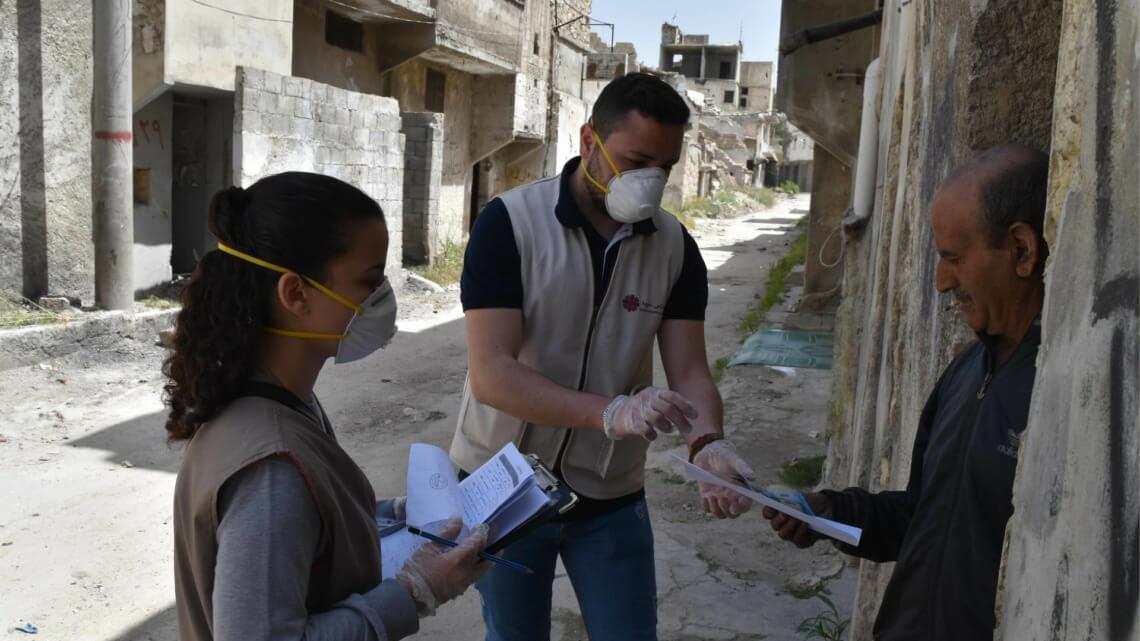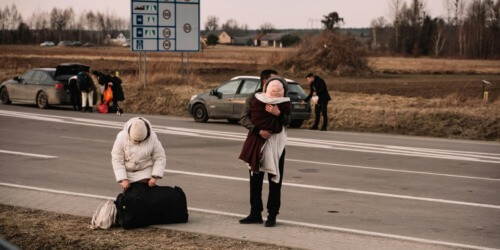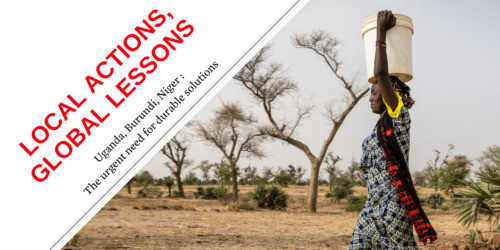For ten years now the Syrian war is still one of the most complex and protracted crises at a global level. This is the result of continued hostilities in localised areas, continued displacement and the sustained erosion of communities’ resilience. Hostilities and insecurity are expected to continue, most notably in the north-west of the country, and thus to generate additional civilian displacement. Bombing and shelling have forced hundreds of thousands more people to move in a desperate attempt to find safety.
COVID-19 worsens an already dire situation
Overall, an estimated 11.1 million people in Syria are in need of some form of humanitarian assistance, including 4.7 million people in acute need.[1] The war’s effects continue to have a disastrous impact on Syrians across the world. Currently, almost 12 million Syrians – half the pre-war population – are displaced inside and outside Syria. Around 6.2 million people are internally displaced, while some 5.6 million refugees are scattered throughout the world, the majority in Turkey, Lebanon, Jordan, Iraq and Egypt, often as much in acute need as those who haven’t left Syria.
Economic shocks coupled with the direct and indirect impact of COVID-19 stand to further increase the number of people in need. COVID-19 has added enormous pressure on a health system that was already on its knees. Those particularly at risk are children, pregnant and lactating women, young girls, people with disabilities, the elderly and other groups or individuals with specific needs or diminished coping mechanisms.
Children, the first victims of the war
Syrian children have known nothing but war. They have learned to hide at the first sound of bombs, they have said goodbye to their loved ones and friends forced to emigrate or who have been killed in the fighting. But above all, they risk being deprived of their future. At the end of 2019, it was estimated that 2.45 million Syrian children, or one in three, were not attending school — often since many years already.
The COVID-19 crisis has pushed a further 50% out of the education system, with the result that two thirds of children do not go to school and risk falling into the trap of child labour.
Challenges to delivering essential aid
The complexity and the impact of unilateral coercive measures imposed on Syria have exacerbated the situation by seriously hampering the ability of NGOs and Church-based organisations to deliver essential aid and to contribute to a just recovery.
While recognizing that all parties to the conflict bear responsibility for the suffering of the Syrian population, the current sanctions imposed on Syria affect the whole Syrian population by limiting their access to basic needs and services. Importing certain humanitarian items is becoming increasingly challenging.
It is a legal and moral imperative to allow aid to reach those in need without delay or impediment, especially in the current COVID-19 pandemic, and to alleviate the social and economic impact on civilian populations.
What needs to be done?
Caritas calls on the European Union to:
- Remove sanctions that prevent the Syrian population from accessing basic needs and services, essential health supplies, including access to COVID-19 vaccines and treatments, and that inhibit the reconstruction of basic infrastructure destroyed by the ongoing conflict.
- Urgently address the unintended implications of sanctions and other restrictive measures hindering effective access to the population and delivery of aid by putting in place effective and transparent humanitarian exceptions.
- Fund interventions designed to lift families out of poverty. The lack of access to education by Syrian children risks having a devastating impact on the future of the country. The education sector is in dire need of resources. In the current context, NGOs have demonstrated that they can be efficient and reliable partners to implement such programs targeting the most needy.
This article is written as part of the MIND project which receives financial support from the European Union’s Development Education and Awareness Programme (DEAR). The contents are the responsibility of Caritas International and do not necessarily reflect the views of the European Union.

















